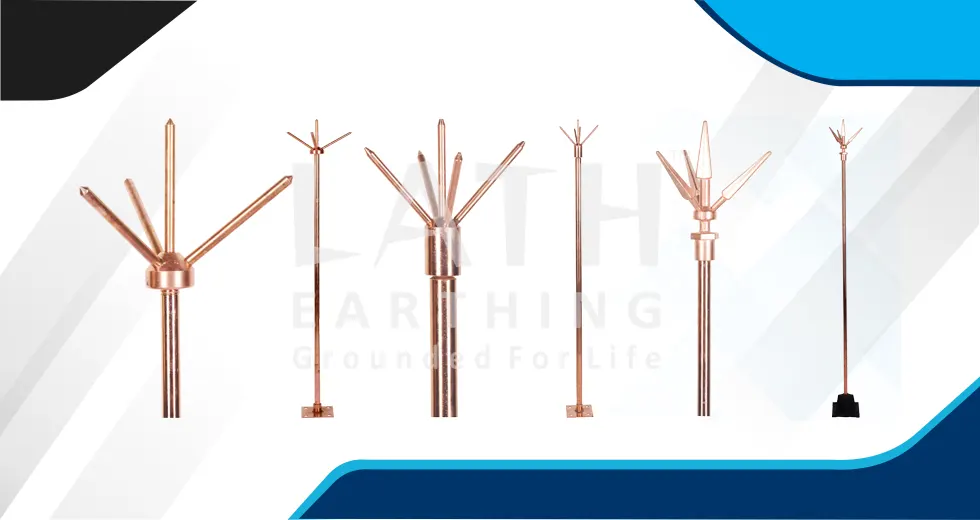
COPPER BONDED LIGHTNING ARRESTOR
A Conventional lightning arrestor or Franklin rod is a metal rod mounted on a structure and intended to
protect the structure from a lightning strike. Lightning rods are also called finials, air terminals, or strike
termination devices.
SAILENT FEATURES
- Permanent Molecular Bonding of 99.9% Pure Electrolytic Copper
- Low Carbon Steel Core for unmatched Tensile Strength
- Minimum Copper Coating of 100 microns. can be increased to 254 microns+
- Cold-Rolled Threads with Continuous. Unbroken Grain flows preserve Copper Coating and are
Stronger than Cut Threads (for Threaded Rods) - Efficient discharge path for lightning current, Low Resistance Guaranteed
- Aesthetic and Unique Design
- Maintenance Free and maximum Resistance to corrosion
- Cost-Effective in comparison to Pure Copper Lightning Arrestor
- Robust construction for enhanced Service Life
- Easy installation and maintenance
- Protect the building from damage and any kind of electrical hazards.
- Suitable for various applications and environments
- Copper Bonding will not Crack when bent
- PVC or Metal Base Plate available as per requirement
- LATH Brand Name, Model Number, Diameter. Length are Laser Marked
- Available along with Test cum Guarantee Certificate
DIMENSION CHART

WHY LATH ?
- In-house Cold Drawn Bright Round processing facility for Stringent Quality Control
- ln-house Cold Rolled Thread facility to preserve copper coating and provide more in comparison to
cut threads - Raw Materials sourced from Integrated Steel Producers i.e. JSW & Vizag Steel Plant (RINL) only.
No Minus Tolerance on Diameter of the Rod i.e, 17.2mm means 17.2mm not 16mm - Only ADOR or ESAB MIG Welding & its Consumables are used in Welding
- Have Minimum 100 Microns + Copper Bonding prevents Rusting and Corrosion (No False Claim of
Higher Copper Coating, Coating available as Committed) - Laser Marked as a Testimonial of Performance Guarantee.
TESTS PASSED

IN-HOUSE LABORATORY
- Tensile Strength (>600 N/mm”)
- Bend Test (No Cracks or Deformation)
- Adhesion Test (Knife Test) No Peel Off
- Cooper Plating Thickness (minimum 100 microns+)
Meets the requirement of IS 3043, IEC 62305
